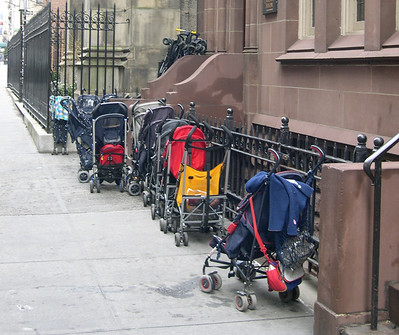A new study by the US Chamber of Commerce Foundation found that childcare issues caused parents in Texas to leave the workforce, drop out of school, and turn down promotions. The foundation surveyed parents with children under the age of six.
Seventy-nine percent of respondents reported working full-time. Eighteen percent of respondents reported working part-time. 3% of respondents indicated that they were not working but were enrolled in an educational program.
Seventy-three percent of Texas respondents indicated that their households relied on a parent, step-parent or other guardian in the household to provide childcare. Eighteen percent relied on a non-household family member or friend for childcare. The remainder relied on third-party childcare providers.
The survey also showed that middle- and high-income households were more likely to choose center-based childcare arrangements. Low-income respondents typically relied on family or friends to provide care for young children.
Nearly half of low-income respondents said that the cost of childcare determined their choice of childcare options, while 56% of high-income families chose childcare arrangements based on personal preference.
Childcare issues cripple working parents’ earning potential
Childcare issues have a direct impact on parents’ ability to work, earn and learn. 75% of respondents reported missing work at least once in the previous 90 days due to childcare problems. 30% of survey respondents said that they or someone in their household had declined a job offer, left a job or changed jobs to accommodate their childcare needs. In addition, 32% of respondents said that they had either voluntarily or involuntarily left a job or reduced hours, turned down the opportunity to increase their work hours or declined a promotion because of their childcare situation. Nearly 20% of the survey respondents said they expected to leave their current position within the next 12 months. Of those, more than one-third they were leaving their jobs due to childcare issues.
Not surprisingly, the lack of childcare options affects women and low-income earners most directly. One third of the survey respondents said they were enrolled in school or in an occupational training program. 37% reported reducing their enrollment or dropping out of their educational program altogether to address their childcare needs.
38% of women reported leaving a role due to childcare problems. 58% of low-income earners said that a household member had left a job to provide childcare. According to the latest figures from the US Census Bureau, 1.5M women employed prior to the pandemic still have not returned to the workforce. Further, the longer women remain out of the workforce, the less likely it is that they will (or can) return to a similar role. Currently, 10 million US women who live with school-age children do not participate in the workforce.
Everyone pays when childcare options are limited
Overall, the report concluded that employee absences and turnover due to childcare cost Texas employers nearly $7.6B annually and generated nearly $10B in economic losses for the State of Texas each year. Additionally, the foundation estimates that the State of Texas loses $1.8B in tax revenues due to childcare problems.
It is tempting to blame the economic losses on the upheaval of the pandemic. Prior to the pandemic, the US Chamber of Commerce Foundation conducted similar surveys in Alaska, Arizona, Arkansas, Idaho, Iowa, Missouri, and Pennsylvania. In each state, they found parents in very similar circumstances. Childcare issues negatively impact households regardless of income level. They prevent workers from improving their personal economic circumstances. The long-tail impacts affect not only individuals, but also employers and the states themselves, through lost productivity and lost tax revenues.
Although the US Chamber of Commerce Foundation has not surveyed Michigan parents, the situation here is the same. Lack of childcare prevents working parents from working more, earning more, advancing their careers, and improving their employability.
Under these circumstances, the Washtenaw Community College administration decided – without notice or discussion – to close the campus childcare center.
Remember that.
Photo Credit: mikescia , via Flickr























